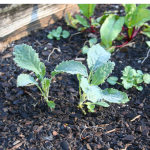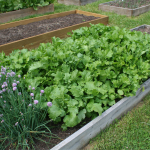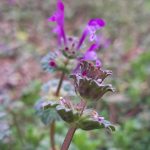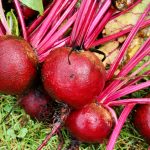Medicinal tea sounds like a strange concept. After all, how can tea be medicine? Medicine should taste bad or come in a pill in an official-looking bottle. Or at least, that’s what I thought until I began studying herbalism.
As an herbalist, herbal tea is my go-to for most herbal preparations. Tea is easy to make. It requires fresh water, heat, and herbs. That’s it. Tea is accessible to almost anyone, tastes good, and can be enjoyed hot or cold.
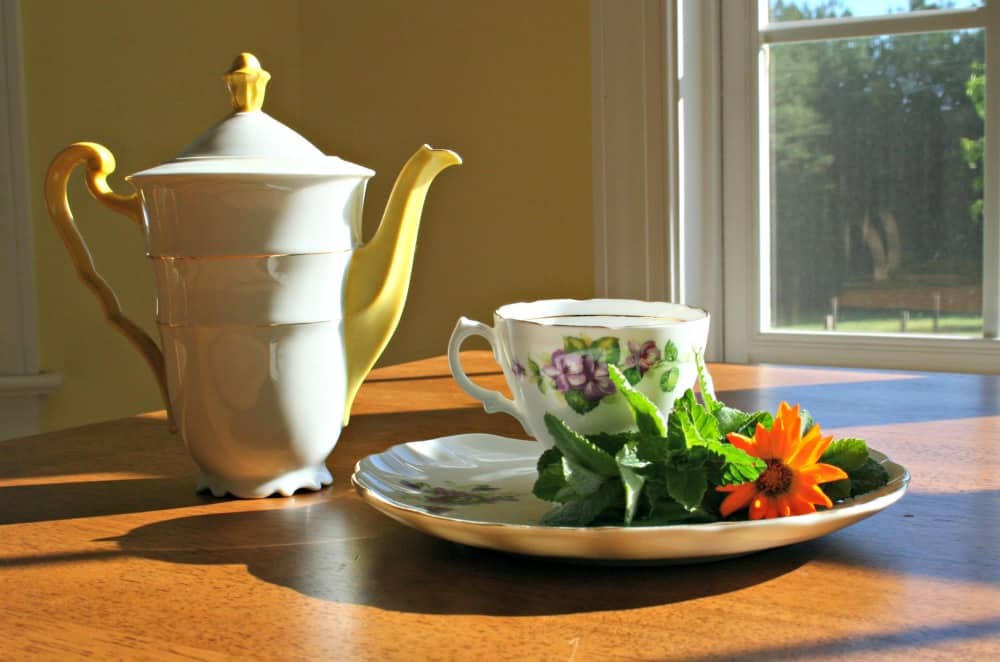
Medicinal Teas: Wellness Support Through Nature
Wellness isn’t supported solely through pills popped when you feel sick. Wellness comes from right living, which includes adequate nutrition, clean water and air, plenty of rest, purposeful work, and strong social and family support.
Herbal teas or medicinal teas have a role in the first category: adequate nutrition.
Pharmaceutical Preparations – The Good and the Not So Good
We need to stop thinking about medicine as only something chemical that comes from a pharmacy. There is a time and a place for such medicine. It is powerful medicine that has done wonders for mankind in the past 100 years.
I would not want to live in a world without antibiotics, pain killers, and other medicines that make surgery, recovery from accidents, overcoming cancer, and living with diabetes, immune diseases, and other illnesses possible.

Herbal Teas Support Wellness
Medicinal teas can support good health by providing:
- Nutrients: Teas made from many of our plant allies and friends contain vitamins, minerals, and trace nutrients that support overall health. For example, stinging nettle, a common supportive medicinal tea, provides a surprising amount of calcium as well as copper and iron. Dandelion roots provide inulin, a compound that acts as a pre-biotic to support healthy gut flora. I could go on and on, but those dried herbs swirled in hot water provide an astonishing variety of nutrients and phytochemical that add to your overall daily diet.
- Warmth: When you have a cold, stuffy nose, or just generally feel lousy, the comforting warmth of a cup of tea can clear your sinuses, soothe a sore throat, and generally make you feel better.
- Calmness: No matter what herbs you choose, the act of preparing a cup of tea is a soothing, calming act. There’s a reason why tea ceremonies worldwide are meditative acts. The ritualized action of preparing, brewing, and serving a cup of tea offers a calming effect that acts on body, mind and spirit. You don’t get that from popping a pill.
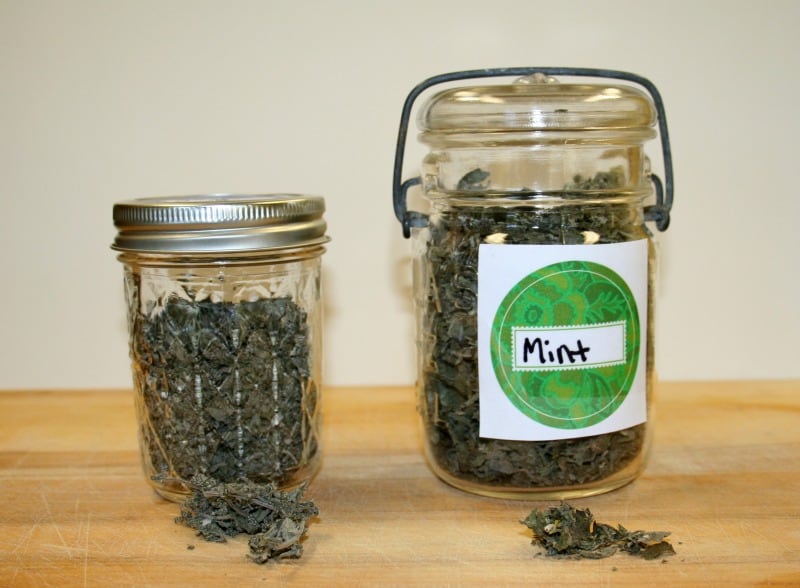
A few pointers on herbal teas:
- Use glass, porcelain, or stainless steel pots to boil your water and brew your teas.
- Cover the container while your tea steeps. This retains the oils and flavors.
- You can brew your medicinal tea in the morning and reheat it throughout the day or sip it at room temperature or chilled later on if you wish.
- You can make your own herbal tea bags to take with you to work, school, or on trips.
I brewed a quart of tea made from 1 tablespoon of dried stinging nettles and 1 teaspoon of spearmint in the morning, for example, and mixed this strong brew with water to sip throughout the day. My friend Helen dropped off the stinging nettles when we had tea a few weeks ago and the spearmint leaves are dried from my own herb garden. Spearmint gave the tea a refreshing sweet taste without sugar and the nettles provided nutrients in the water I sip throughout my work day.
It’s these little additions of herbs throughout the day that infuse herbal medicine into your daily life. For example, my day began with scramble eggs. I sprinkled basil salt onto the eggs, and the basil added a few trace elements to breakfast. I sipped the nettle, spearmint and water drink throughout the day. At dinner, I made chicken and noodles, and sprinkled dried tarragon onto my chicken. I love tarragon with chicken. That’s four herbs in one day to add to a healthy diet for wellness support.
My Presentation: Grow an Herbal Tea Garden
See how you can add medicinal teas, herbal teas, and culinary herbs throughout your day. The more plants you can add to your diet, the better!
** Remember ** Medical Disclaimer **
This information is not intended as a substitute for the medical advice of physicians. The reader should regularly consult a physician in matters relating to his/her health and particularly with respect to any symptoms that may require diagnosis or medical attention. Neither the author nor the publisher are liable for the use or misuse of this information. Consult a physician for medical information.

